Top 10 Beer Brands in the World:
The beer industry is massive. The top ten largest beer firms in the world will completely dominate the business in 2020 as the international craft beer industry brews up a booming business. Beer is truly a global alcoholic drink and among the most frequently consumed drinks. Commercially, the international brewing industry has an anxious quiet for a long period. Although functioning in close vicinity to certain rivals, the world's largest beer corporations have marked out regions for themselves.
In the craft beer market, the transition is a needed function. The intended demographic has changed and must change the craft breweries appropriately. The Millennial generation is fascinated by when, why and how their beer is crafted, a target audience. An increase of new craft breweries has appeared on the scene, while established firms have produced a wide variety of new items. Understandably, there's a fierce rivalry.
According to the latest market report; the International beer market size is projected to increase by $97.1 billion during 2020-2024, with a steady CAGR (Compound annual growth rate) of over 2 percent during the prediction period.
In this article, we have discussed the top 10 best beer brands consumed around the world.
1. Pilsner
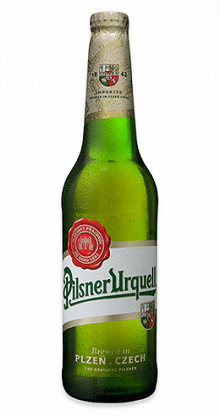
Pilsner is a type of beer that originally came from the western Bohemian city of Pilsen (Plze?). In 1842, it was first brewed, attempting to make it one of the eldest craft beers in the advanced brewery to emerge. The style arose when miserable with the beer's efficiency, the residents of Pilsen planned to create the Bürger Brauerei (Citizens' Brewery), which would afterward become Pilsner Urquell.
They finally brought in Josef Groll, a Bavarian brewmaster, who moved to produce the very first pilsner beer. While the original concept was to produce a lager in the Bavarian aesthetic, the use of Czech additives greatly affected the creation of a new aesthetic. The initial pilsner was created with gentle malted barley from Moravia and Saaz hops and was among the first variant of a clear, light bud beer.
The form, with individual values, was quickly emulated around the world. Today, the form is split into two major provincial subgroups by the formal categorizations: Bohemian and German Pilsner. The finest pilsner instances will be crispy and refreshing, with a powerful hoppy flavor, despite slight cultural differences and innumerable impersonations worldwide.
In the Czech Republic, hardly Pilsner beer is alluded to as pilsner, whereas the title most frequently used for pilsner breweries in Germany is piles.
Available Variants
Pilsner Original - 5% ABV
Server with
Ramen (A noodle dish)
Types
German Pilsner
Origin
Plzen, Czech Republic
2. Pale Ale
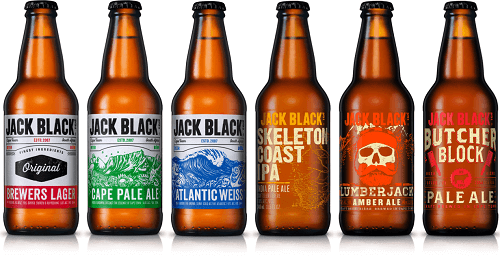
Although the title pale ale originally came from England in the 18th century, it was being used primarily for craft beers manufactured of pale un-malted barley that was significantly lighter compared to the standard dark and brown beers. The title is most often used interchangeably in the literature resentful, to complicate matters, and the distinction between these two colors is rather ambiguous to this day.
The aesthetic development in distinct angles over the coming decades- is primarily driven by multiple beer processes and the hops selection, offering a vibrant form with a wide variety of properties, strengths, and flavors. The majority of models, however, are malty, hop-forward, and vary from gold to brown.
The form includes pale ale English, pale ale Indian, bitter English, pale ale Belgian and pale ale American.
Available Variants
Pale Ale Beer - 5% ABV
Server with
Cheese Burger, Poutine
Types
Indian Pale Ale
American Pale Ale
Bitter
American Pale Ale
Strong Bitter
English Pale Ale
English Indian Pale Ale
Ordinary Bitter
Origin
England, Europe
3. Stouts
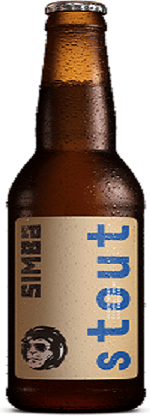
Stouts are top-fermented beers that are darkly colored and have distinctly smoked varieties. Their emergence is intimately associated with British porter-a form established in London sometime during the 18th century. Although this difference is no longer functional, Stout developed from building a better and tougher porter.
There will be traditional stout aromas of roasted barley and malt that imitate chocolate, coffee, or cocoa. Standard dried stocks range from dark to dark brown and are typically smooth, silky, and creamy in the flesh, medium-light to medium-full. Traditionally, they have low hop quality and a lengthy rich flavor.
The stout classification is now very flexible, but the popular Lager Stout, which is considered the Form's model, is perhaps the most influential representation. This segment now includes numerous added ingredients and types, such as oatmeal, English, sweet, Imperial, International Extra, and United States stocks. Several other sub-styles are probably to have a stronger hop effect.
The difference between draught and bottle stouts is also created, and usually, the prior will be crunchier and have a much more permanent head. Stouts are also a great experience for crispy, salty, and spice foods, as well as delicious and pleasant desserts, significant variation and discrepancies in appearance.
They often fit well with mountain cheeses that are blue-veined and dried.
Available Variants
Pale Ale Beer - 4.2 % ABV
Server with
Gruyere Cheese, Chocolate truffles, Cheddar Cheese
Types
Imperial Stout
Sweet Stout
Guinness Draught
Irish Dry Stout
Oatmeal Stout
Origin
England, Europe
4. Brown Ale
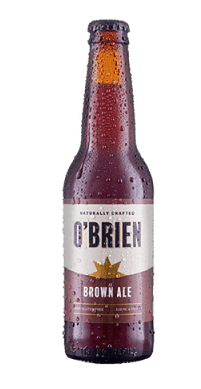
Brown ale is an ancient and popular type of beer whose roots lie in the British manufacturing heritage. The word was used as a common term in the 19th century for various varieties of beers that were made from dark malt. The brown ale genre almost faded out with the advent of pale malt, and it's only resurrected gradually in the 1920s.
Newcastle Brown was the most first version to bear the brown ale brand; although it did not depend on the console models, the advanced style was based on it. Today, the style combines the more conventional UK version and American brown ales that are completely different.
This beer can vary from dark copper to brown color or caramel. They appear to get a prominent malt taste, biscuits, caramel, and toffee flavors, as well as a slight hop aspect, although they seem to be hoppier in American variants. Brown ales are usually mild to light in the body and match well with mature cheddar combinations, roasted pork, sausages, and sauces based on peanuts.
Available Variants
Brown Ale Beer - 3 % ABV
Server with
Poutine
Types
American Brown Ale, English Brown Ale
Origin
England, Europe
5. India Pale Ale
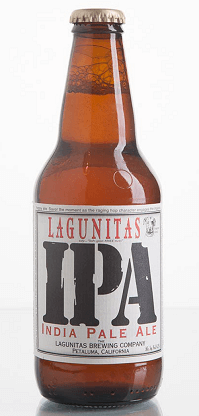
India pale ale is among the most interesting types of beer whose origins are still fiercely debated. Still, it is assumed that it first seemed essential to distribute pale ale breweries to separate British colonies, especially India, because the weather was too warm to make beer in the colonial possessions.
By raising alcohol content and including more grains, which would help conserve the beer on long journeys, it is proposed that IPA (India Pale Ale) was developed. Whereas the first allusion to the Indian pale ale title usually refers to the 1830s, the aesthetic is believed to have shown up far sooner.
The production version is thought to have been produced by a Hodgson brewing company in the 1780s. Whenever the beers arrived at their destination, they achieved a different invigorating identity by introducing more hops-, and unexpectedly fading over time. In hot and humid environments, Indian pale ales became popular because they were soft and crispy.
Beer procedures transitioned to lagers by the end of the 19th century, and the Indian Pale Ale slowly lost its fortress. It was not until the 1980s that it was reinstated by American microbrews, accomplishing remarkable performance and making IPA one of today's top favorites.
Not amazingly, in England, where it was originally conceived, also brought India pale ale. Some instances today will get a predominant hop type. Although English variants will have floral and spicy complexities, American IPA tends to suggest a completely different identity that involves tropical fruit and pine.
Most IPA variants match well enough with spicy and hearty foods, Asian cuisine, grilled and fried beef, as well as specific sorts of cheese.
Available Variants
Indian Pale Ale Beer - 4.5-17.2 % ABV
Server with
Fried Chicken, Burger, Cheddar, Prommes Frites
Types
American Indian Pale Ale
English Indian Pale Ale
Origin
England, Europe
6. Helles
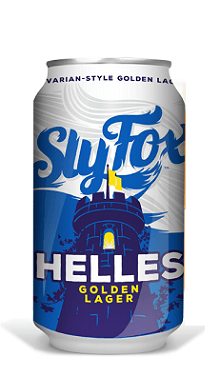
Helles is a craft beer in the German tradition that first originated in 1894 in Munich. It was the Bavarian reply to the Czech mild pilsner beer. While Bavaria leaned entirely on powerful and dark lagers, it inspired Bavarian producers to begin brewing a consistent theme by the trend of crisp and golden pilsner styles.
Classic Helles is usually very malt-forward and has a stiffer body, nonetheless maintains soft and intermediate than pilsner and other lager types. It is clear, incredibly simple, smooth, young, and dry, Including light hop stiffness and mild malt sweetness.
Generally, Helles-style beers are very enjoyable and differ slightly from 4.8% to 5.2% ABV, although those over 5% are also known as Bavarian exports. Like salads and fish, Lite recipes will fit well enough with Helles lagers, but they can also fit with spicy and texture dishes, and typical German cuisine and moderate cheese kinds.
Available Variants
Helles Beer - 4.8 - 6% ABV
Server with
Weiβwiirsle sause, Bratwurst, Schweinebraten, Pretzel, Semmelknodel
Types
Augustiner Brau Lagerbeir Hell beer
Dinkelacker beer
Andechser Hell beer
Tegernseer Hell Beer
Hacker-Pschorr Muncher Helles beer
Spaten Premium Lager Beer
Lowenbrau Beer
Weihenstephaner Beer
Origin
Munich, Germany
7. Weissbier (Weizenbier)
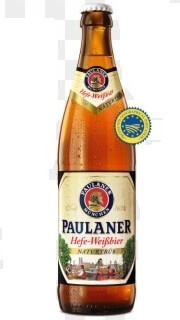
Weissbier is a traditional Bavarian grain ale that's also highest and described by its meringue foam and snowy texture, resulting from the significant proportion of wheat used in its manufacturing and a little barley percentage malt.
German rules stipulate that at least 50 percent must produce malted wheat. However, most variations use more than the reasonable level. These beers are pasteurized with wild yeast that provides bananas, cloves, smoke, and infrequently even chewing gum for their traditional notations.
Weissbiers are usually malty and subtly miserable, yet this procedure has become unusual even since they are customarily pasteurized in the bottle. They preserve their smoothness, creamy consistency, and exuberance, nonetheless. Although this form of beer is often linked with Bavaria today, wheat beers have been manufactured until ancient times. At the same time, it is assumed that their European existence is in Czech Bohemia, from where it stretched to Bavaria.
It attracted millions of users all across the decades. Still, it regained its past glory after the 1960s and became one of Germany's greatest coveted after genres and the international level. These nutrition beers, along with flavorful and creamy cheeses, are an incredible match for chicken, sausage rolls, seafood, gentle cuisine, and sandwiches.
Available Variants
Weissbier Beer - 5 to 5.5% ABV
Server with
Weiβwiirste sause, Wiener Schnizel, Pretzel,
Types
Weiβbier Beer Short weiβe Beer
Hefeweiβbier Beer
Kristallweiβbier or Kristallweizen Beer
Dunkles Weiβbier or Drunkelweizen Beer
Origin
Bavaria, Germany
8. Dubbel

A smooth and well-balanced Trappist beer originated in Belgium, Dubbel is often associated with the modern version of Henrik Verlinden, who created the prototype at the Westmalle brewery in 1926. This version was named Dubbel Bruin and copied the style in many Belgian breweries soon after its invention.
Classic Belgian Dubbel will have its taste from candi sugar, a dense and gloomy crunchy syrup that is incorporated into the brine, unlike other colored beers. Traditionally, these beers originate from amber to copper, and they are generally emblematic of raisins, malt, toffee, and dark fruit with intricate citrus notes.
Frequently, their coating is clean, even though it can exhibit malty taste. Most are predisposed in the flask, pasteurized in the bottle, and are not probably perfectly understandable. However, they are traditionally quite impactful; the alcohol is not apparent or distinguishable on the aroma with at least 6.5 percent alcoholic beverage.
Dubbel beer is a great complement to the kinds of a wipe down, or Alpine cheese, and they also complement barbecued, dark chocolate, or roasted beef, rich curries of meat, and sausage rolls well.
Available Variants
Dubble Beer - 6 to 8% ABV
Server with
Stillon, Chocolate truffels, Roquefort
Types
Chimay Première (Red)
Koningshoeven/La Trappe Dubbel
Achel 8 Bruin Beer
Origin
Westmalle, Belgium
9. Dunkel
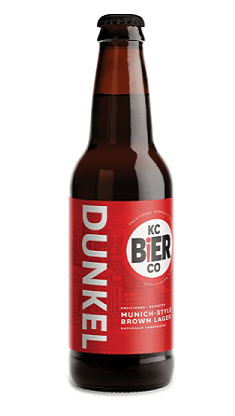
Dunkel is a gloomy lager from Germany, most of which is correlated with Bavaria and Munich. This dark beer is largely composed of Munich malt, which might vary from copper to brown color, giving the drink its classic cinnamon and buttery identity.
Soft, moderate, convenient, overly sweet, and not too dense will typically be the beers that fit into this category. Traditional toasty flavors may be followed by scents of caramel, hazelnut, and nut, whereas the aspect of hop may well be evident but should appear minimal.
With traditional Bavarian recipes such as fruit-based sauces, sausage rolls, and grilled or deep-fried beef, the Dunkel beers blend extremely well.
Dunkel, or Dunkles, is a term used for a variety of darker German lager beer forms. The German term describing dark is Dunkel, and Dunkel beers vary slightly from brown to deep red-brown in appearance. Their sleek malty flavor distinguished them. "Dunkel" is usually an indication whatever lager the pub has on board, or markets much of it in unofficial terminology, including when purchasing at a pub; it may be Altbier across much of western and northern Germany, particularly near Düsseldorf.
Dunkel is a classic form, together with Helles, fermented in Munich and famous in Bavaria. Dunkels are lighter than Doppelbocks, other typical dark Bavarian beer, with alcoholic percentages of 4.5 percent to 6 percent via size. Munich malt flavors are used to make Dunkels, which grants the Dunkel its color. There may even be certain malts or flavors included.
There is a unique malty taste in several dunkels that emerges from a unique manufacturing method called decoction mashing. Dunkel beer is usually dark craft beers, but darker wheat beers like Franziskaner Hefe-Weisse Dunkel are often referred to in the description. Some other word used to apply to dark wheat beers is Dunkel Weizen, which is fizzy and pleasant with much more roasted and ground malts than the hefeweizen, which is lighter equivalent.
Available Variants
Dubble Beer - 4.5 to 6 % ABV
Server with
Bratwurst, Schweinebraten Pork, Rosted Sauerbraten
Types
Aktienbrauerei Kaufbeuren Dunkel
Andechser Dunkel
Augustiner Dunkel
Ayinger Altbairisch Dunkel
Fester Dunkel
Erdinger Dunkel
Franconia German Dunkel
Hofbrau Munchner Dunkel
Konig Ludwig Dunkel
Hacker-Pschorr Munchner Dunkel
Paulaner Original Munchner Dunkel
Lowenbrau Dunkel
Warsyeiner Premium Dunkel Beer
Spaten Munchen Dunkel
Weihenstephaner Bayrisch Dunkel Beer
Origin
Bavaria, Germany
10. Guinness Draught
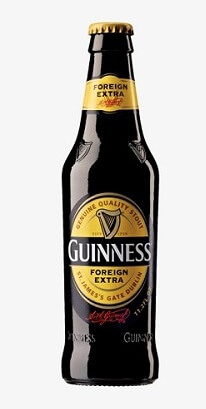
Guinness Draught is a traditional dense Irish stout crafted from buckwheat flour and malted grain barley fried. Guinness maintains one of several globe's most-exported beers till this day. Arthur Guinness, who established the brewing company in 1759, begins the tale of its development.
Lager beer was all the style, but Arthur started to experiment with a dark beer classified as a stout, which became increasingly successful in England. Guinness needed to rely largely on external instead of other craft beers, trying to send its strong black beer all over the global economy.
Arthur transferred his corporation to his son, Arthur Guinness II, who established Ireland's biggest production facility. When Arthur Guinness decided to sign his 9,000-year contract, Guinness Draught was produced in 1959 as a celebratory beverage to commemorate the moment.
The beer was an immediate sensation, commended for its wealthy and powerful, creamy, silky texture and variability. It incorporates acidic hops, malt bitterness, and bittering hops tastes, whereas coffee and malt are the typical aromas. Caramel desserts, or Chocolate traditional British and Irish foods, beef, shrimp, and fish are best mixed.
Guinness Draught is distributed in cans, bottles, and kegs and typically has 4.3 percent alcohol content.
Available Variants
Dubble Beer - 4.3 % ABV
Server with
Bangers and Mash, Chips and Fishes, Burger, Shepherd's Pie, Dubliner, Souffle au Chocolat
Types
Guinness Draught Beer
Guinness Extra/ Original Beer
Guinness Foreign Beer
Guinness Draught special Export Beer
Guinness Draught Extra smooth Beer
Malta Guinness Beer
Guinness Zero ABV Beer
Guinness Draught Mild- strength Beer
Guinness red Beer
Guinness Draught Bitter Beer
Origin
Dublin, Ireland


0 Comments